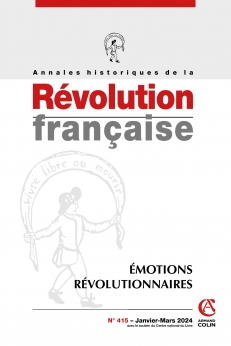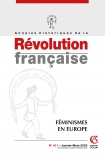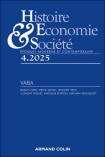
ANNALES HISTORIQUES DE LA RÉVOLUTION FRANÇAISE Nº415 (1/2024)
Pour acheter ce numéro, contactez-nous
Recevez les numéros de l'année en cours et accédez à l'intégralité des articles en ligne.
This article follows in the wake of the call to “reconstruct the emotional life of long ago” made by Lucien Febvre, and in the works of Barbara Rosenwein on “emotional communities” and those of William M. Reddy on “emotives” and “emotional systems”. The aim of this article is to examine the place of emotions and sensibilités during debates on the death penalty and its implementation through the concepts of “emotional communities” and “emotional systems”. By closely studying the speeches made by several deputies, it is primarily a question of demonstrating that emotions and sensitivity were used in a rhetorical perspective: making use of them made it possible to strengthen a line of argument and lend weight to a position, whether it was the abolition or conservation of the death penalty. Furthermore, the debates which took place between 1789 to 1792 also formed part of a redefinition of an “emotional community”. Indeed, they indicate that the deputies shared the same emotional reluctance when they had to address head-on the specific dimensions of capital punishment. The discussions show that the death penalty and its implementation were prisms for examining the degree of acceptability of certain emotions. These debates thus serve as a case study for understanding the construction of an emotional space related to the death penalty and public order.

